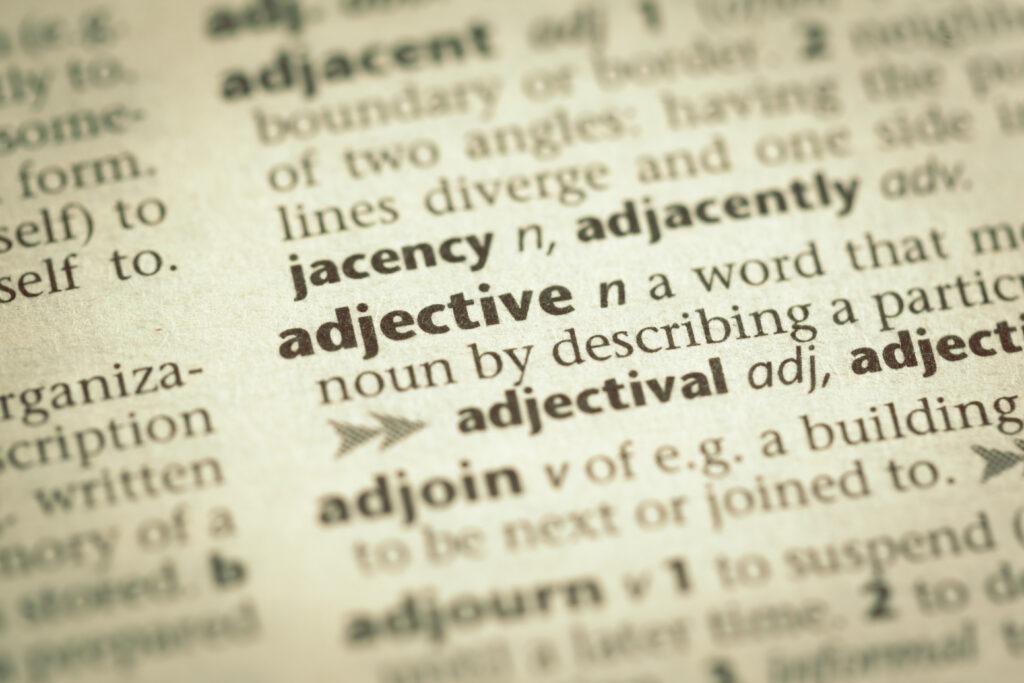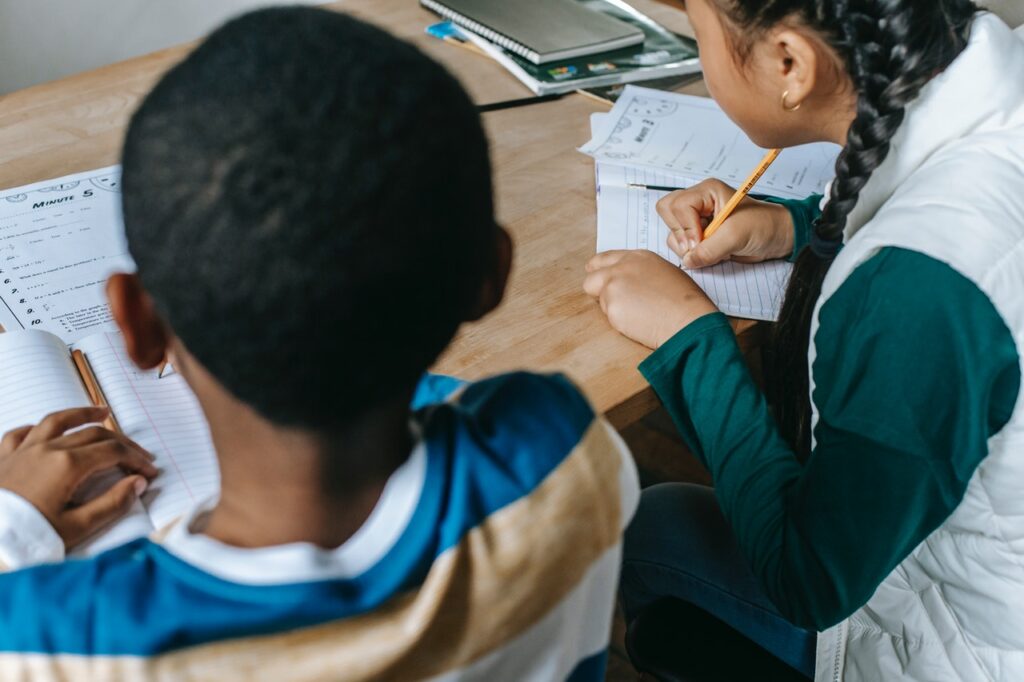What should your child expect to learn in Year 7 English?
If you’re curious to know more about Australia’s Year 7 English curriculum, you’ve come to the right place! Here’s a brief summary about its key learning areas, the types of texts, themes and assessments along with the standard of work your child should be able to produce by the end of the year.
Let’s jump right in!
Language, Literature and Literacy in the Year 7 English Curriculum
Types of Text Studied
Assessment Types in Year 7 English
Themes in Year 7
Standards for Year 7
Year 7 English Worksheets and Resources
Looking for English guides for other year groups?
If you have a child in a different year group to Year 7, we’ve also got guides for them! Have a look at our guides for the various year groups:
Year 1 | Year 2 | Year 3 | Year 4 | Year 5 | Year 6 | Year 8 | Year 9 | Year 10
What does your child learn in the Year 7 English Australian curriculum?
Australia’s Year 7 English Curriculum consists of three main learning areas:
- Language
- Literature
- Literacy
Altogether, these learning areas impart skills and knowledge in listening, reading, speaking, writing, viewing and creating pieces. English teachers will build on the processes, concepts and skills learnt in the past few years to refine your child’s strength in English!
If you haven’t checked them out already, there are also major curriculum changes coming to Years 7-10 Maths in NSW starting from 2024!
Let’s dive into the three elements in more detail:
Language
Familiar with the words like yeet, skrrt or lol?
Well in terms of this learning area of the Australian Curriculum, your child will be learning how language evolves with our ever-changing world. They will also learn how people express and create their own identities through their own language through accents, styles and idioms.
More specifically, your child will start to understand how technology has impacted our way of communicating within and between cultures.
To build on past skills, they will refine their use of punctuation to guide meaning in complex sentences as well as build their understanding of text structure to form a coherent piece. Additionally, they will be introduced to more complex language features and structures such as taxonomies, cause and effect and extended metaphors.
To put it into practice, they will observe and practise how language can be used to analyse texts and use references to back up their arguments. Through brushing up their use of modality, academic vocabulary, spelling rules as well as their understanding of new perspectives, they’ll learn how to develop and express their own unique ideas!
In summary, your child will learn about how:
- Language varies and changes
- Language is used for interaction
- Language is structured and organised
- To express and develop their own ideas
Literature
When we think of literature, we probably think of the classic works from years ago like those of William Shakespeare, Charles Dickens and Jane Austen.
Your child may become very familiar with these authors, but the Australian Curriculum will also introduce texts that come from a variety of historical, social and cultural backgrounds. This will enable your child to identify and dive into a vast variety of ideas and perspectives about events, dilemmas and personalities.
Responding to Literature
Teachers will also train your child to respond to literature by teaching them how to review concepts and opinions about events, environments and people by finding similarities and differences within arguments to justify their own viewpoint.
At the same time, your child will also be comparing how language and visuals are used to build character as well as evoke emotions and opinions. They will participate in discussions about artistic expression and value of texts in society by using metalanguage, an appropriate set of terms to describe the author’s language.
Your child will also be taught on how to examine literature through studying how characterisation, events and settings bind together, and how this presents the author’s purpose. Ultimately, your child will be able to comprehend, interpret and exchange views on how language is used to create dramatic effect in films and build multiple meaning within poetry like haikus, tankas and more.
Writing
And finally, your child will make use of all the analysing they’ve done to create a literary masterpiece of their own! Your child will have a chance to experiment and repurpose techniques from other texts into their own.
Techniques used could include stylistic elements such as viewpoints, contrast and juxtaposition or language features such as sound effects, colour, rhythm and more.
To wrap it all up, your child will learn how to:
- Understand the relationship between literature and context
- Respond to literature
- Examine literature
- Create literature
Literacy
When we think of literacy, we’re probably thinking of NAPLAN since that’s what we’re familiar with. But in Year 7 English, your child will level up in their reading and writing.
Like we discussed in Language, your child will learn how to examine and explain how advancements in technology have impacted on texts, especially texts from the media.
Multimodal Tasks
Besides that, they will also delve into spoken texts to explore and debate about its main ideas and perspectives to evaluate its value. To engage their audiences, interaction skills such as body language, music and sound will be used by your child to strengthen their discussion and presentation of concepts and information.
This will be assessed through presentations, where your child will need to plan, practice and present appropriate topics using different modes of delivery to promote their viewpoint or introduce a new perspective.
Analysis and Comprehension
Your child will also enhance their ability to interpret, study and assess texts.
They will need to analyse and clarify how the structure and language features of text give rise to meaning with consideration of the audience and the author’s purpose. This is done by comparing text features of different modes of texts and how they come together to impact their audiences.
Teachers will also brush up your child’s comprehension skills as they learn how to understand, break down and combine concepts and information from many different texts. Previous knowledge and skills in breaking down texts will be useful here in interpreting and forming critiques about the ideas and conflicts from different types of texts.
How Your Child Will Use Their Literacy Skills
In the end, your child will use their polished skills in literacy to plan, draft and complete a variety of works including creatives, informative and persuasive texts with special attention to the topics, language, visual and audio techniques chosen to project ideas. They will also build meaning within their own works by fine-tuning their ideas, reordering sentences or manipulating words for desired effect.
Other more technical skills your child will learn include a handwriting style that is readable, fluent and sustainable for long periods of writing. They will also learn how to use a variety of softwares to make, edit and publish written and texts of different modes.
Ultimately, your child will:
- Understand the relationship between texts and context
- Use interaction skills to deliver presentations
- Interpret, analyse and evaluate a variety of texts
- Create texts
Types of Text Studied
Lucky for your child, they’ll be enjoying a wide variety of texts to learn how to read, view, interpret and assess diverse forms of writing. They’ll also be speaking, writing and developing multimodal texts themselves to understand the craft, as well as the text’s ability to persuade and provide a profound message.
The types of texts include:
- Films
- Poetry
- Drama
- Newspapers
- Journal
- Early adult novels
- Magazines
Your child will also delve into Australian literature, including oral narratives and contemporary literature from Aboriginal and Torres Strait Islander communities, to prepare them for Year 10. They may also expand to classic and contemporary world literature, including texts revolving around Asia.
By studying loads of different kinds of texts, your child will learn how texts are shaped by their own contexts, purpose and audiences.
Different schools have their own prescribed texts — so don’t worry if you feel that your child is going to miss out on a specific text that another school is doing!
Assessment Types in Year 7 English
Your child will gain more independence in developing many types of creative, informative and persuasive works that demonstrate their ability to analyse and transform texts, such as:
- Creative writing
- Essays
- Reports
- Presentations
- Debates
- Discursives
- Discussions
For a better idea of what kinds of tasks and at what level your child may have to perform, check below:
Themes in Year 7 English
As your child enters into the brave new world of high school, they will be introduced to more challenging themes in English. English classes will start to cover complex real-life and fictional scenarios involving conflicts in relationships and ethics that provide a variety of perspectives.
Ultimately, the specific themes such as conflict, love or resolution may come down to the preference of your child’s English Teacher.
Standards for Year 7 English
Here’s a dot point summary of the milestones your child is expected achieve by the end of their Year 7 period:
Listening, reading and viewing
- Understand how text structures can shape a text’s level of sophistication with consideration of the audience, purpose and context.
- Demonstrate the use of language features, visual imagery and vocabulary to provide meaning.
- Analyse a variety of sources and its supporting evidence to elaborate on issues, ideas and implied meaning.
- Choose parts of text to create their own response with consideration of different interpretations.
Speaking, writing and creating
- Understand how language features are selected to impact the audience
- Understand how to use their personal knowledge, analysis of texts and other sources to explain or argue against a point of view.
- Create pieces that combine language features and images for desired effect
- Create structured, comprehensive and understandable texts for a variety of purposes and audiences
- Deliver presentations and participate in discussions by using engaging language
- Use appropriate grammar, spelling and punctuation as well as more sophisticated vocabulary
Year 7 English Worksheets and Resources
Been looking for additional English worksheets and resources for your child in Year 7? We’re here to help!
Spelling Worksheets
Now that your child is in high school, spelling is still more important than ever as they continue to develop their vocabulary and use more complex terminology in their studies.
We’ve got a wide variety of spelling lists that your child can use to practise — check out our article below:
Download Printable Year 7 Spelling Words Worksheets
Reading Lists
As your child becomes familiar with the way high school English is taught, they’ll be analysing texts in-depth within their classes. To help them get used to this, it can be beneficial to read and view texts that are recommended by NESA.
You can browse through the list we’ve compiled below:
The Essential Year 7 and 8 Reading List
NAPLAN
Two years have gone by since the last time your child sat the NAPLAN, so they will be completing it again this year — as always, there will be a focus on literacy.
If you’d like to learn more about what your child will be assessed on, or just need a refresher, we’ve got a guide just for you!
Check out our Year 7 NAPLAN guide below:
The Ultimate Guide To The Year 7 NAPLAN
And that’s it! If you’d like to learn more details about the Year 7 English Australian curriculum, check the full page out here.
Besides that, we wish your soon-to-be Year 7 all the best!
Looking for some extra help for your child with Year 7 English?
We have an incredible team of English tutors and mentors!
We can help your child master their English texts and ace their upcoming English assessments with personalised lessons conducted one-on-one in your home, online or at one of our state of the art campuses in Hornsby or the Hills! If you’re needing tutoring support in the Blacktown area, we can also help.
We’ve supported over 8,000 students over the last 11 years, and on average our students score mark improvements of over 20%!
To find out more and get started with an inspirational English tutor and mentor, get in touch today or give us a ring on 1300 267 888!
Kate Lynn Law graduated in 2017 with an all rounders HSC award and an ATAR of 97.65. Passionate about mentoring, she enjoys working with high school students to improve their academic, work and life skills in preparation for the HSC and what comes next. An avid blogger, Kate had administered a creative writing page for over 2000 people since 2013, writing to an international audience since her early teenage years.








